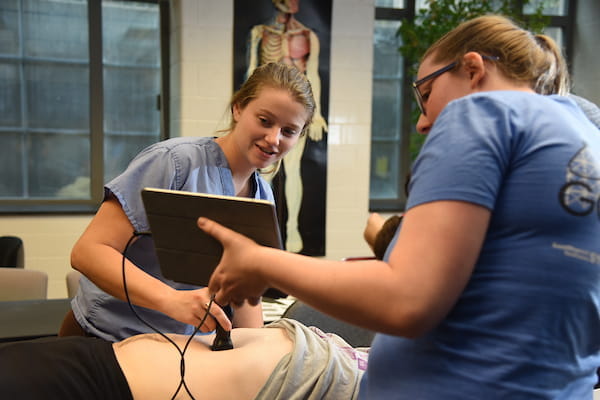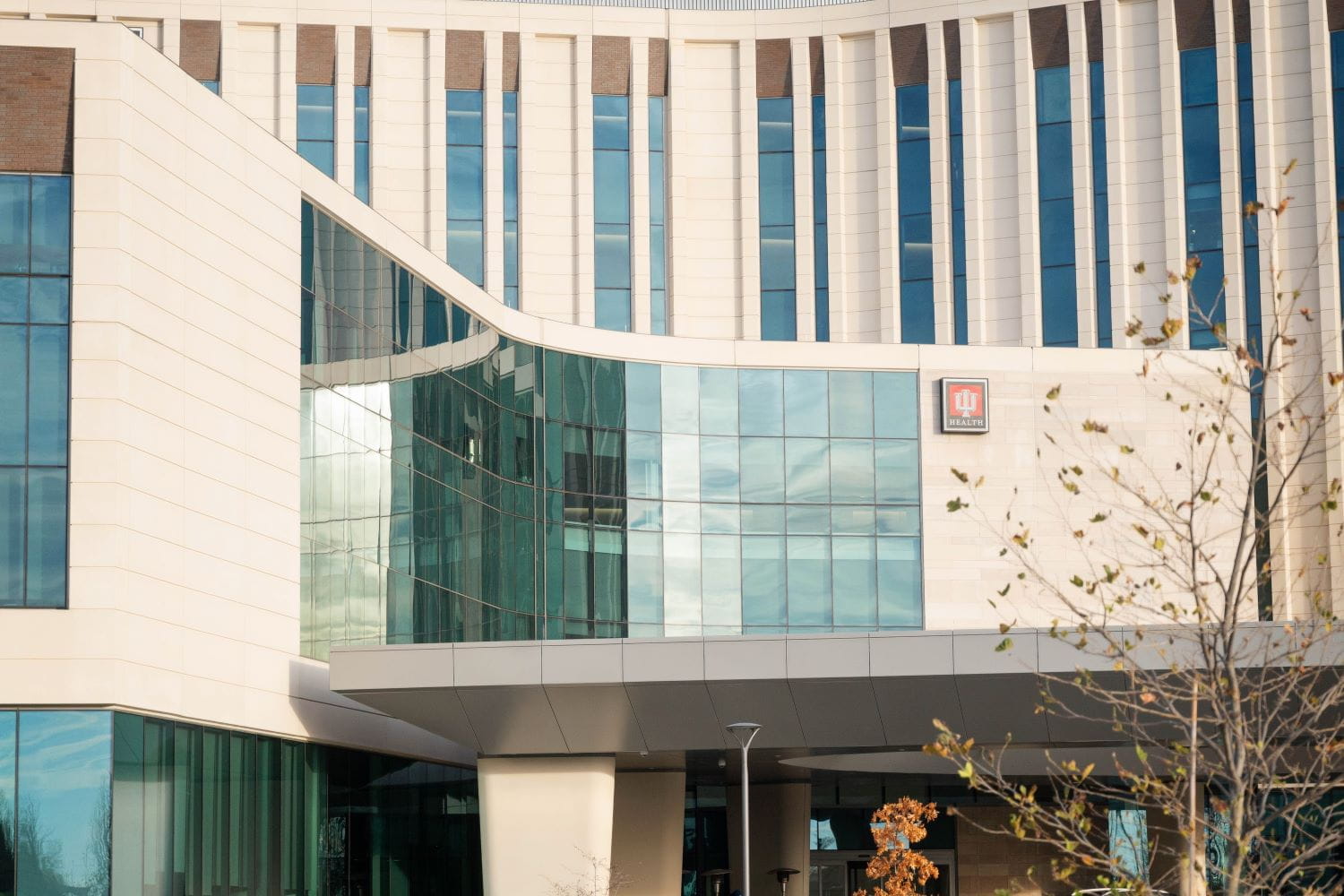The Internal Medicine Residency program at Indiana University School of Medicine—Bloomington and IU Health Bloomington Hospital was accredited in April 2025. It is designed to provide comprehensive experience in internal medicine to train its residents for careers in primary care, rural health medicine and general hospitalist medicine, and for further training in medicine subspecialties. The program will welcome its first class of residents in July 2026.
This is a community-based program in an academic setting, and we offer the benefits of both types of internal medicine programs. IU Health Bloomington Hospital was completed in 2021, moving into the new Regional Academic Health Center. This state-of-the-art facility allows Indiana University and IU Health to partner and work under one roof, giving our community access to cutting-edge medical education in medicine, nursing, social work and speech and hearing, as well as innovative hospital care.
Medical Education in Bloomington
Medical education has been a part of the main Indiana University campus in Bloomington for more than 50 years, welcoming first- through fourth-year medical students.
In addition to working in the Big 10 collegiate environment of Bloomington, internal medicine residents will also work in more rural areas of southern Indiana at critical access hospitals and clinics in Bedford and Paoli. This part of the state is underserved, and residents will learn how to care for patients in areas with more limited resources.
A Greeting from the Department Chair

